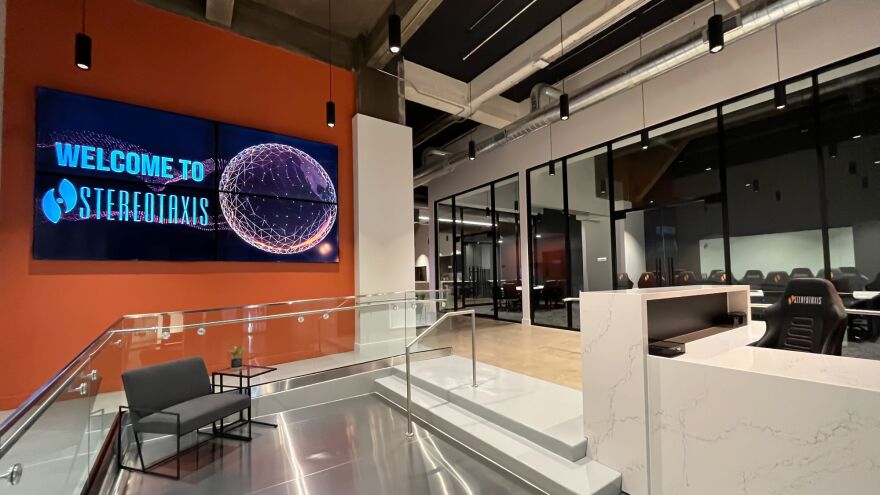Five years ago, St. Louis-based Stereotaxis was nearly $20 million in debt. The future of the company was in doubt.
Now, the company is out of debt, has $40 million in cash and is back on the New York Stock Exchange after being delisted by Nasdaq. And, with Missouri Gov. Mike Parson in attendance, the medical device company today opened its new headquarters in downtown St. Louis.
Stereotaxis now occupies 43,000 square feet in the Globe Building, the former home of the St. Louis Globe-Democrat.

“One of the big reasons why we moved to the Globe Building, and we spent quite a lot of money on the move, was because we view it as a good home for the next decade, at least,” explained CEO David Fischel. “We hope to be able to grow nicely there over the coming years.”
Stereotaxis was founded in 1990 and was one of the first tenants of St. Louis’ Cortex Innovation Community more than a decade later. Leaving the Midtown neighborhood for the Globe Building provides space to expand advanced manufacturing, global distribution and research and development — all on a single floor.
Fischel became CEO of Stereotaxis in 2017, coming from the LA-based firm that invested in it to lead its turnaround. He said he became convinced the struggling company was worth saving because it had “the base of a fundamentally good technology with good clinical value.”
Stereotaxis has been a pioneer in developing robotic technologies for people with irregular heartbeats. Tens of millions of people worldwide have an arrhythmia. Left untreated, it can cause serious health risks such as strokes and heart attacks.
Dr. Mitchell Faddis, an electrophysiologist at Barnes-Jewish Hospital and director of clinical cardiac electrophysiology at Washington University, estimates he’s performed several hundred operations with Stereotaxis’ robotic technology.
“The value in my mind of this system is its precision, and safety,” he said. “The alternative technique is for me to stand by the patient and manipulate the catheter from outside the body, and to try to have millimeter precision with where I put the tip of the catheter on the inside of the heart.”
The company has about 140 employees globally, about 90 of them based in St. Louis. Fischel has lofty ambitions, specifically when it comes to improving many kinds of endovascular procedures.
“That's the beauty of medicine is this kind of constant march towards progress,” Fischel said. “Overall, medicine advances in a very nice kind of fashion. And the therapy that we get today is better than what was provided 10 years ago, and it will be better in 10 years from now.”
“St. Louis on the Air” brings you the stories of St. Louis and the people who live, work and create in our region. The show is hosted by Sarah Fenske and produced by Emily Woodbury, Kayla Drake, Danny Wicentowski and Alex Heuer. Jane Mather-Glass is our production assistant. The audio engineer is Aaron Doerr.





